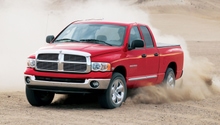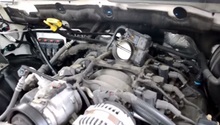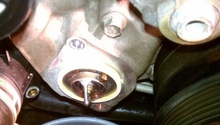Dodge Ram 2002-2008: Common Engine Problems
The 3rd generation Dodge Ram came with three gas engines from the factory. You have the 3.7 liter V6, the 4.7 liter V8, and the 5.7 liter Hemi V8 to choose from. Each has proven to be a reliable option, but in isolated cases, there have been some common problems recorded.
This article applies to the Dodge Ram (2002-2008).
The three gas engines found in the Dodge Ram are used throughout the Chrysler vehicle lineup, making replacement parts support widely available from the factory and aftermarket. If you're looking to purchase a Dodge Ram, you will notice a majority agreement on forums that state these engines will give you lots of trouble-free mileage when maintained correctly. Each engine has had some problems reported from owners, but the numbers point to a solid design and platform from the Chrysler engineers.
Component Breakdown
3.7 Liter V6
This engine is rated at 210 hp and 235 ft./lb. of torque. It began its introduction with the Dodge Ram in 2002 and is all the way through the 2008 model year. This engine brings good economy to your truck offering 16 mpg city and 19 mpg highway. Also, it's equipped with a 6-speed manual transmission standard after the 2004 model year. A 5-speed automatic is optional. Not many issues have been reported with this engine aside from a couple of instances with reports of an engine knock developing at the timing chain tensioners or rocker arms.
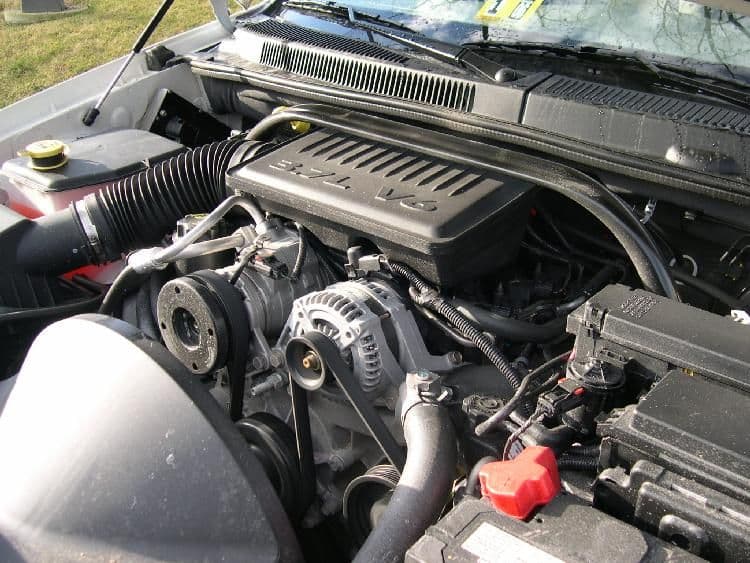
4.7 Magnum V8
This engine does have its share of common problems. Some of these include broken exhaust manifold bolts, engine overheating and blowing head gaskets, as well as engine sludge buildup. Though, again, it should be noted that these are not affecting every truck out there by any means.
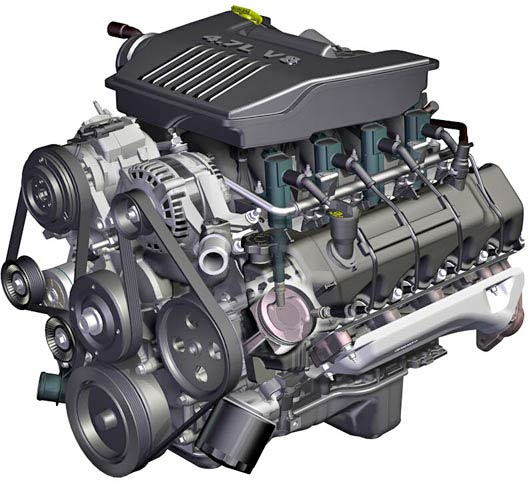
The 4.7 liter engine is nearly identical in design to the 3.7 liter. Most parts interchange between the two. The 4.7 engine brings a good mix of power and economy with 235 hp and 295 ft./lb. of torque. This numbers were raised in 2008 to 310 hp and 330 ft./lb. of torque, making it a close competitor to the Hemi. Fuel economy is decent for the engine size at 14 mpg city and 19 mpg highway.
5.7 Liter Hemi
The 5.7 Hemi engine is one of Chrysler’s trademark engines for delivering horsepower and torque. Owners will be pleased with its rated 345 hp and 375 ft./lb. of torque. It can propel a standard cab Ram from 0 to 60 in seven seconds. With all this power comes the ability to tow quite a large amount of weight, as much as 9,000 lbs. For those that tow frequently, Dodge advises you should follow the service schedule in the owner’s manual that most meets your driving style. Gas mileage is good for this size engine with 13 mpg city and 17 mpg highway recorded. In 2005, when the Multi-Displacement System (cylinder deactivation) was added, these mpg ratings increased by three more miles in the city and four more on the highway.

Overall, the 5.7 engine is said to be very stout. In very isolated events there have been reports of mechanical engine failures that may be due to a defect with the valve spring design before the 2005 model year. One problem that is commonly talked about is the notorious "Hemi tick." This seems to be a noise only found when the engine is cold and appears to cause no mechanical problems. It may be a part of the valve trains design. Some have taken their Ram to the dealer to be told this noise is normal.
Featured Video: Dodge Ram 1500 Hemi Engine Tick
Scheduled Maintenance
Refer to the Related Article: Engine Maintenance for your maintenance schedule. A copy of your owner's manual can be downloaded from the Ram's website.
Common Questions
Which Engine Will Provide the Most Reliability?
Many owners of the Dodge Ram suggest the Hemi engine is the best all-around with its high power output and good mpg rating. Replacing the valve springs for model years before 2005 should yield you many miles (200,000+) of trouble-free driving; although, valve spring failures are an isolated problem.
The 3.7 liter engine boasts very good reliability. Dodge Rams with this engine compared to the 5.7 are worth $1,500 less according to Kelley Blue Book.
Common Issues
The 'Hemi Tick" (5.7)
Many Hemi engine owners experience this issue; although, no problems have been reported to associate the noise with.
Updated Valve Springs (5.7)
In 2005, the valve spring design was updated. The original design is said to be weak, and these new springs are better suited to work with the cylinder deactivation feature found on the 2005 and later year models.
Broken Exhaust Manifold Bolts (4.7)
The exhaust manifold bolts on the 4.7 have been known to break, causing a ticking noise. Check your vehicle for exhaust leaks near the manifold.
Engine Overheating and Blown Head Gaskets (4.7)
If the engine reaches over 235 degrees, it is susceptible to head gasket failure. Some owners also report back cylinder heads cracking near the valves as well as clogged radiators. This has been attributed to poor coolant passage design.
(Related Discussion: 4.7L V8 Overheating Problems - DodgeForum.com)
Prone to Sludge Buildup (4.7)
This problem most often occurs when oil changes are neglected. Using high quality oil and filters will deter sludge buildup.
(Related Discussion: Sludge Buildup on 4.7L V8 - DodgeForum.com)
Foam on the Bottom of the Oil Cap (4.7)
PCV valves and neglected oil change intervals are the main cause of this problem. It occurs when there is an inadequate supply of vacuum on the crankcase, and when moisture levels get high in the oil. Not fully warming up the engine between drive cycles will also cause accelerated moisture/sludge buildup in the oil.
(Related Discussion: Foam in Oil Filler - DodgeForum.com)
Ticking Sound Coming From the Engine (3.7)
This ticking sound appears to originate in the valve train, although one owner confirmed his noise came from one of the timing chain tensioners. If you experience this ticking sound coming from your 3.7, it's best to have it checked by a qualified technician.
Technical Service Bulletins (TSB)
Once again refer to the Related Article: Engine Maintenance for the list of TSBs.
Related Discussions
- Common Issues with Dodge Ram - DodgeForum.com
- Most Common High-Mileage Hemi Problems - DodgeForum.com
- Reliability of 4.7L vs. Hemi - DodgeForum.com

